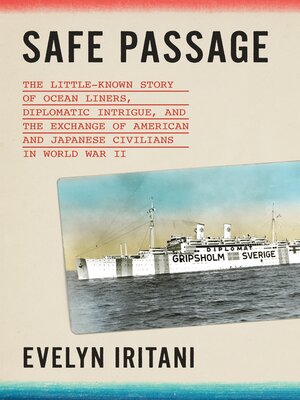Safe Passage
ebook ∣ The Untold Story of Diplomatic Intrigue, Betrayal, and the Exchange of American and Japanese Civilians by Sea During World War II
By Evelyn Iritani

Sign up to save your library
With an OverDrive account, you can save your favorite libraries for at-a-glance information about availability. Find out more about OverDrive accounts.
Find this title in Libby, the library reading app by OverDrive.



Search for a digital library with this title
Title found at these libraries:
| Library Name | Distance |
|---|---|
| Loading... |
An untold story of idealism, betrayal, and behind-the-scenes American–Japanese contacts in World War II.
In the fall of 1943, during some of the Pacific theater's bloodiest battles, the United States and Japan pulled off a diplomatic coup— the exchange of civilians caught on the wrong side of the battlefield after Pearl Harbor. Nearly fifteen hundred Allied civilians trapped in Asia, mostly Americans, sailed through dangerous waters to an Indian port city where they were traded for an equivalent number of Japanese immigrants and their families sent from the Americas. The fate of the more than ten thousand Americans left behind rested on the success of this endeavor.
In Safe Passage, the award-winning journalist Evelyn Iritani reveals the herculean efforts of the American diplomat James Keeley to engineer these wartime exchanges despite great resistance from within and outside his government; the shipboard conflicts among passengers, including missionaries, revelers, and sharp-tongued journalists; and the moral compromises involved in securing their safe passage. Faced with too few bodies to trade and desperate to free Americans from perilous conditions, the United States uprooted and repatriated Japanese citizens of Latin America, sometimes against their will, while Japanese imprisoned in camps, many of them American citizens, were forced to choose between expulsion to a war zone or an uncertain future behind barbed wire. The result is a revelatory account of the hurdles to pursuing humanitarian action in wartime.







